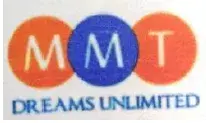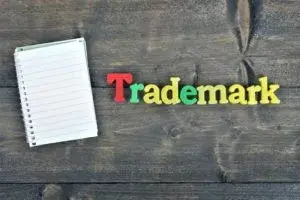By Tulip De and Kiratraj Sadana
In a recent case, the High Court of Delhi has reiterated that there should be a positive act or an express assent on the part of the right holder to claim the defense of acquiescence under Section 33 of the Trademark Act, 1999.
In the case, the Hon’ble High Court of Delhi vide its order dated October 18, 2019, confirmed the ad-interim injunction, restraining Make My Travel (India) Private Limited (hereinafter, “the Defendant”), from using the trade mark/ trade name ‘Make My Travel’ (word per se) and ‘MMT’ (letter mark), tag line ‘Dreams Unlimited’, domain name ‘www.makemytravelindia.com’ and the ‘Make My Travel’ logo i.e.  which comprises the infringing letter mark ‘MMT’ and tagline ‘Dreams Unlimited’.
which comprises the infringing letter mark ‘MMT’ and tagline ‘Dreams Unlimited’.
The Plaintiff, Make My Trip (India) Private Limited, filed the present suit to restrain infringement of its trademarks by the Defendant. The Plaintiff secured a favorable order dated May 17, 2018 passed by the High Court of Delhi. Subsequently, the parties had tried and eventually failed at arriving at an amicable resolution.
Brief Facts and Plaintiff’s Contentions:
- That the Plaintiff is continuously and uninterruptedly using the marks MakeMyTrip and MMT, since August 02, 2000. The tag lines “Memories Unlimited” and “Hotels Unlimited”, have also been continuously and uninterruptedly used by the Plaintiff for its business activities since they were conceived in May 2013.
- That the Defendant’s marks were phonetically, visually, structurally and conceptually identical or deceptively similar to the aforementioned trademarks of the Plaintiff and the nature of service and the class of purchasers likely to use the service are identical. Even the meaning for the Trade names are identical.
- For the sake of full disclosure, the Plaintiff submitted that in the past it had exchanged a few correspondences with two individuals- Mr. Desh Raj Yadav and one Mr. Kishan Panara, whose email addresses were makemytravel8@gmail.com and makemytravel28@gmail.com respectively. However, Plaintiff is not aware of whether these two individuals and email addresses are in any way connected with the Defendant.
Defendant’s Contentions:
- The Defendant took the plea of acquiescence under Section 33 of the Trade Marks Act, contending that the Plaintiff and its officials were aware that the Defendant has incorporated a company by the name Make My Travel (India) Private Limited and is doing business since the year 2010-2011. Furthermore, there were correspondences exchanged between its booking customer care executive and franchisees of the Plaintiff during the period 2011 to 2017.
- Plaintiff and Defendant are members of various associations where in the list of members, their name appears alongside each other. In the years 2011 to 2017, Plaintiff and Defendant had entered into business transactions and on occasions, money was transferred from the account of Defendant to that of the Plaintiff.
- With respect to the emails exchanged with Mr. Desh Raj Yadav and Mr. Kishan Panara, it was clarified that the said persons and their IDs have never been not associated with the Defendant company in any manner whatsoever.
Plaintiff’s Reply to Plea of Acquiescence:
- The Plaintiff stated the emails which the Defendant is referring to was exchange with the booking executives and franchises of the Plaintiff. That the communication was not with its management or any its key managerial personnel who could be regarded as persons who ought to be aware of the Defendant’s existence.
Court’s Observation:
Regarding the Similarity in Trademark:
- The Court observed that the nature of goods/services in respect of which the two trademarks have been used and the target audience are common.
- The Court relied on Hoffman La Roche v. Geofferey Manner, in which the Apex held:“true test is whether the totality of the proposed trade mark is such that it is likely to cause deception or confusion or mistake in the minds of persons accustomed to the existing trade mark.”The Court further relied on Shree Nath Heritage Liquor Pvt. Ltd. v Allied Blender & Distillers Pvt. Ltd. (2015) 221 DLT 359, wherein the Delhi High Court while dealing with the marks OFFICER’S CHOICE and COLLECTOR’s CHOICE elucidated the concept of similarity in idea of a trademark and use of synonyms as trademarks. The Court elaborately discussed the different types of synonymy observed in adoption of trademarks or trade names classifying the same into absolute synonymy and relative synonymy. It was held that in case of relative synonymy, words or phrases may be similar in certain contexts while not in others and in such cases, where certain words which may not be similar in every context but convey the same idea in a particular context, similar brand name recollection impairment may be observed. Thus, it was held that marks containing words with the same sense relation (or falling in the same semantic field, or conveying the same or similar idea in the mind) as that of previously existing marks are likely to be considered so similar as to be refused registration or deemed to constitute infringement of the previously existing trademark. The said judgment was recently followed in the case of The Gillette Company v Tigaksha Metallics Private Limited 251(2018)DLT530, wherein the Court held that the device mark
 is deceptively similar to the Plaintiff‟s mark
is deceptively similar to the Plaintiff‟s mark  , as the words SWORD and TALVAR convey the same meaning.
, as the words SWORD and TALVAR convey the same meaning. - Similarly, in Corn Products Refining v Shangrila Food Products AIR 1960 SC 142 also, the Apex Court noted the concept of similarity of idea. In the said case, the Court was dealing with the marks GLUCOVITA and GLUVITA and it was observed that the idea of the two marks is the same as both convey the ideas of glucose and life giving properties of vitamins and to a person of average intelligence and imperfect recollection, the overall structural and phonetic similarity and the similarity of the idea in the two marks is reasonably likely to cause confusion.
- Reference may also be made to the case of Prathiba M. Singh v. Singh and Associates, 2014 ( 60 ) PTC 257 ( Del ), wherein this Court discussed the concepts of “priming” and “word association” and it was observed that experts have defined the same as “Priming” and which is defined as an implicit memory effect in which exposure to one stimulus influences a response to another stimulus. The seminal experiments on the said subjects appear to be of Meyer and Schvaneveldt who found that people were faster in deciding that a string of letters is a word when the word followed an associatively or semantically related word and subsequent research has led to priming, now being understood to be of many sorts. The said works report that priming can occur following perceptual, semantic or conceptual stimulus repetition and that its effect can be very salient and long lasting and unconscious, affecting word choice on a word-stem completion test, long after the words have been consciously forgotten. Keith E. Stanovich and Richard F. West in their Paper “On Priming by a Sentence Context” published in the Journal of Experimental Psychology have reported associative priming as a word that has a high probability of appearing with the prime and is associated with it and frequently appear together and context priming as where the context speeds up processing for stimuli that are likely to occur in that context and reported that these latter words are processed more quickly than if they had been read alone. The phenomenon is also described by some as ‘Word Association’ meaning “stimulation of an associative pattern by a word” or “the connection and production of other words in response to a given word done spontaneously”.
- The Court also observed that the Defendant has not given any cogent explanation, and prima facie appeared to be dishonest.
Regarding the Plea of Acquiescence:
- The Court observed that the correspondence which the Defendant is relying on cannot be considered as positive acts of encouragement towards the Defendant to do business under the Impugned marks.
- The Court further observed that the Defendant has not placed on record any email communication exchanged with the management of the Plaintiff Company, or any of its key managerial personnel who ought to have been aware of Defendant’s existence. Therefore, it is not a case where the Plaintiff can be held to be guilty of suppression of facts.
- The law relating to acquiescence is well established. In Hindustan Pencils Private Limited v. India Stationary Products ,the question of delay and acquiescence was dealt elaborately with. It was held that there should be a positive act or an express assent on the part of the right holder to claim the defense of acquiescence.
- Furthermore in Reddy Laboratories Pvt. Ltd. v. Reddy Pharmaceuticals it was held that the owners of trademarks or copyrights cannot be expected to run after every infringer and that the right holder can wait till the time the user of their name starts harming their business.
- The Court, agreeing with the Plaintiff’s submission regarding the plea of acquiescence observed that:
‘The correspondence with the booking customer care executive of the Plaintiff who apparently did not have knowledge of the intellectual property rights of the Plaintiff, cannot be considered as positive acts of encouragement towards the Defendant to do business under Infringing/Impugned Marks’
Decision:
The Court in the light of aforementioned observations held that the Plaintiff prima facie the balance of convenience lies in favour of the Plaintiff and Irreparable loss would be caused to the Plaintiff if the Defendant is not restrained from using the impugned marks.
Therefore, the Court allowed the Interim Application and confirmed the ad interim Injunction Order dated May 17, 2018, making the same absolute.
The Hon’ble Court in this case had a thorough discussion regarding the effects of ‘priming’/ word association and the recollection power of a person of average intelligence and imperfect recollection. This judgment will have a far reaching effect in the field of IPR litigation.


